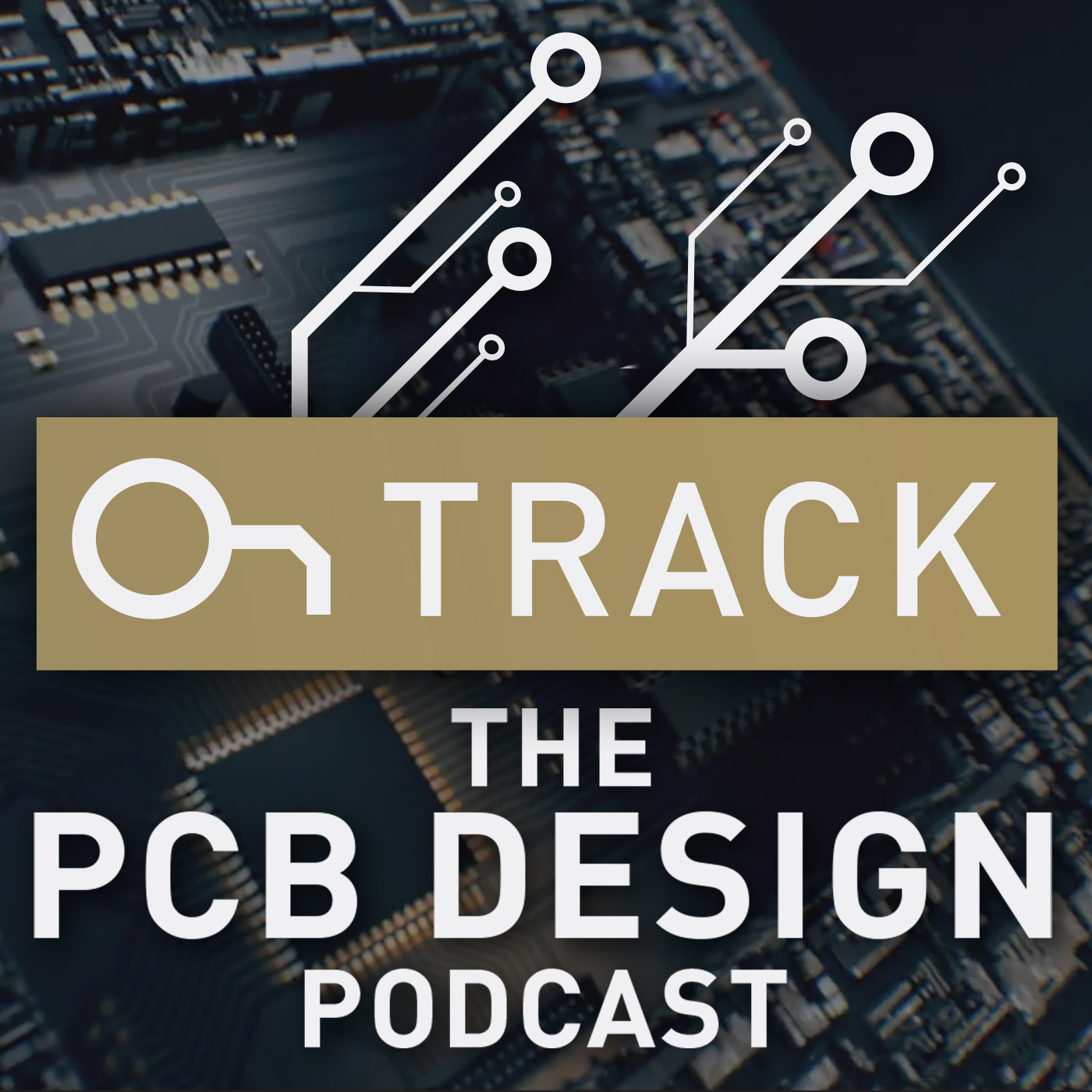Episodes
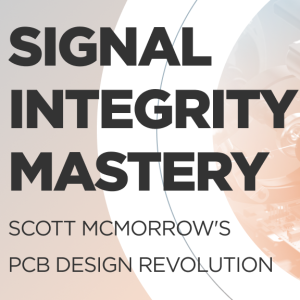
Monday Jan 29, 2024
Signal Integrity Mastery: Scott McMorrow's PCB Design Revolution
Monday Jan 29, 2024
Monday Jan 29, 2024
Scott McMorrow, Strategic Technologist for Signal Integrity Products at Samtec Inc. who's well-renowned for his expertise in signal integrity, discusses revolutionary techniques in PCB design on this episode of the Altium OnTrack podcast.
We delve into Scott's journey in the electronics industry, his approach to overcoming complex PCB layout challenges, and his predictions for the future of signal integrity in PCBs. Learn how Scott's methods are transforming the way designers approach PCB layouts, ensuring optimal performance and reliability.
Join host Zach Peterson as they explore Scott's influential work at Samtec, his experience in consulting, and the innovative strategies that earned him a nomination for Engineer of the Year at DesignCon.
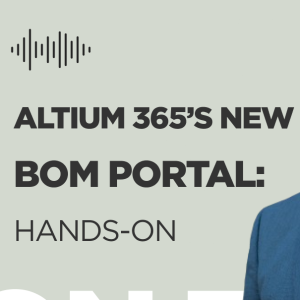
Thursday Jan 25, 2024
Hands-On with Altium 365's New BOM Portal
Thursday Jan 25, 2024
Thursday Jan 25, 2024
In this episode of the OnTrack Podcast, we explore the innovative BOM Portal in Altium 365, a cutting-edge tool transforming PCB design and electronic development. Tech Consultant Zach Peterson sits down with Ananth Avva, General Manager at Altium's Cloud Platform, and Damir Khayrutdinov, Product Manager at Altium, to discuss the tool.
Altium's BOM Portal, compared to ActiveBOM, offers a seamless and efficient approach to managing bill of materials (BOM) throughout the product lifecycle. We dive deep into the capabilities and features of the BOM Portal, including its integration with various CAD tools and its role in streamlining design-to-realization processes. Learn from our guests about the trends and challenges in electronics development and how Altium Designer 24's BOM Portal addresses these issues.
Key Highlights
- Discussion on trends in electronics development
- Reasons for building the BOM Portal on Altium 365
- Challenges in BOM management and how the BOM Portal addresses them
- Insights into the relationship between ActiveBOM and the BOM Portal, how it works, customer response, future developments, multi-board systems, and the future vision for Altium 365
Resources and Links
- Follow Ananth Avva and Damir Khayrutdinov on LinkedIn
-
Learn More about BOM Portal Here
-
How to 'Shift Left' and Connect Procurement and Engineering? Altium 365 BOM Portal Step-by-Step
Transcript
Zach: Some of the features that you just mentioned sounds a bit like ActiveBOM in Altium Designer and I think the more experienced Altium Designer users out there will notice this. So, how exactly does this new tool compare with ActiveBOM? Does it replace it or does it complement it?
Damir Khayrutdinov: Yeah, it's a good question. ActiveBOM is a BOM tool what was designed to help engineering team release design BOMs with all needed information and capabilities such as adding alternates, line numbers, custom lines, et cetera. And seems it works well based on level of adoption and user feedback. However, it's embedded into the design tool, Altium Designer.
Zach: Hello, everyone. Welcome to the Altium OnTrack podcast. I'm your host, Zach Peterson. Today, we're talking with Ananth Avva, General Manager of Altium's cloud business and Damir Khayrutdinov, Product Manager at Altium. We're gonna be discussing one of the new features in Altium Designer 24 and that feature is the BOM Portal. I got to see a short demo of it before this episode and so I'm very excited about this new feature and I hope all of you will be as well. Damir and Ananth, thank you so much for joining me today.
Ananth Avva: Yeah, likewise. Great to be here, Zach.
Zach: So, what are some of the trends and problems that you're seeing in the electronics development space, Ananth?
Ananth Avva: Yeah. So, I think the common root cause is the velocity of the actual development process continues to accelerate and the proliferation of electronics as everyone probably listening to the podcast, they're no stranger to that. But I think that's the root cause but the symptoms show up and I would say in three different areas. The first one is, sort of, mapping requirements and intent to the actual design. So, when you start going from functional to physical to actually the layout, are you actually bringing those requirements all the way through, right? The second one, while in the post Covid era, we've seen supply chain, et cetera, settle down. Supply chain, and also just compliance for components 'cause that's still about 40% to 70% of what you're building is a big area of focus especially as we're getting into whether it be geopolitical tensions in the Red Sea, all the way to trying to understand your actual full traceability of where the components coming from down to the fabrication plant. So, that's a very big area of focus, especially for our aero military customers. The third area, I would say, is getting into some of these emerging themes like sustainability and getting down to what is the footprint of what I'm making and 80% of, sort of, the sustainability aspects is done in design. And so, bringing some of those thoughts, especially when you're thinking about your BOM and you're thinking about, sort of, orchestrating your entire supply chain, that's come up and starting to come up, especially with DPP requirements coming in Europe. And lastly, it's the collaboration with manufacturing. So, we deal a lot for obvious reasons with designers and that handoff process and making sure that the manufacturers and the components that they're selecting versus what was in design and then people are moving lockstep. That continues to be a big focus. But all of these four areas are sort of the symptoms but the root cause is, again, just the velocity with which development's happening.
Zach: Well, given the velocity that you've mentioned, it sounds like that was part of the motivation behind building a lot of these new features in Altium Designer 24. So, what was the motivation behind building the BOM Portal on Altium 365?
Ananth Avva: Yeah, I think with Altium Designer, I mean that's obviously where we have our design audience, but we wanted to build a front end where other folks can come in and start collaborating and very specifically, your component, sort of, manufacturing personnels or even the masses where they're able to actually get that visibility. I think of, sort of, that BOM as the first, sort of, physical manifestation where the design is actually born, right? You're in the design to realization space, that's the first front end that everyone can actually look at and collaborate on. And so, the motivation for doing this in the cloud and basically having this sort of abstraction layer out of AD because one of the key things is, the BOM Portal, while, you know, it's highly functional and highly integrated into Altium Designer, it's mixed CAD. So, we'll actually work with all the CAD tools. And so, we really wanted to make sure that we have that one front end where it's not just for designers but it's also for all of the other satellite professionals that they touch and they're able to come in and collaborate to ensure all the issues that we just talked about in the electronic development process. We have a way to mitigate those risks and have those participants come in and basically get that view and also basically get the ability to edit and collaborate on the design itself.
Zach: So, since we're here to learn a bit more about the BOM Portal tool, Damir, maybe you can tell us what are some of the BOM management challenges that you've seen across the industry that inspired your team and the development of this new tool?
Damir Khayrutdinov: In addition to the standard challenges and BOM and supply chain management for electronics such as chip shortage and second sourcing, we noticed that the processes and tools used for that are mostly from 90s. Most still use Excel files and emails for that. So, to get the PCB BOM ready for ordering, the procurement team works with exported Excel BOMs. This process typically involves four, five emails with collaboration about three or four contributors who are responsible to make decision. Yeah. So, this takes time to interact and because of the friction happens later in the process, cost of the work, time and money wise, is more expensive. Of course, there are companies who well adopted with POM MRP and the ERP systems, but even the company implemented such systems, the level of its adoption is different. So, we track the cases when engineering use POM PDM, but procurement still works with Excel, shared drives, et cetera. Another common problem is fragmented approach to accessing and analyzing technical specifications, compliance information and supply chain data. Typically, procurement expert quality engineers and compliance specialists have to navigate through multiple platforms to gather necessary details about parts. The result in scattered data, yeah, manage it across different systems, often leading to limited access to all of these team members. And we can talk also about product teams and OEM specifically. For such teams, the BOM management is not finished once the BOM is released. You should be aware of the manufacturability of your released PCB BOM during the end customer warranty period or product production cycle, which might be not just a few weeks or years. So, for such teams, BOM management is an interactive process that is time consuming and error prone due to constantly changing supply chain. For such teams, the manufacturability is a function of a time. So, the release BOMs needs to be constantly monitored. And in order to manage that, most of the teams still use manual processes for that which is not so effective. So, I would highlight these three common challenges which are at across the industry.
Zach:Yeah, you mentioned Excel files and emails. I will admit I'm guilty of that one, but I think it's because of the lack of anything better and everybody else does it. So, you're kind of shoehorned into doing this because there just hasn't been anything better really. So, given all of those issues that you brought up, how does BOM Portal help solve some of those challenges?
Damir Khayrutdinov: Yeah. In short, the BOM Portal helps to take advantage of rich parts and supply chain information to scrap BOM and identify risks from multiple angels. It might be availability, it might be cost, it might be compliance, second sourcing, et cetera. Next is the collaboration aspect, which is, I would say, one of the core features of the A 365 platform. So, with the BOM Portal, you can get the advantage of constant platform for engineering and procurement team in one, so no exported files without context anymore and you have a common collaboration process in one. And third, I would say that we didn't really use it, but it's a parts watchdog feature which is currently in the closed beta, but it helps to deduce supply chain risk and ensures continuous production by proactively tracking and providing warnings for supply chain issues, prompting timely action to avoid any disruptions. Of course, we still offer parts traceability or we call it very usage which simplifies the identification and assessment for potential absolute issues. So, these three things.
Zach: You know, some of the features that you just mentioned sound a bit like ActiveBOM in Altium Designer and I think the more experienced Altium Designer users out there will notice this. So, how exactly does this new tool compare with ActiveBOM? Does it replace it or does it compliment it?
Ananth Avva: Yeah, it's a good question. ActiveBOM is a BOM tool what was designed to help engineering team release design BOMs with all needed information and capabilities such as adding alternates, line numbers, custom lines, et cetera. And seems it works well based on level of adoption and user feedback. However, it's embedded into the design tool, Altium Designer. And ActiveBOM has a strong dependency on the design data. So, in order to use it for procurement, you need to share design, all design and provide access to the design tool. Next is that it helps on the design stage but not beyond it. For example, you can create the ordering from multiple PCBs which need to be assembled. It's also not effective to use in a production stage. For example, in order to add additional alternates suggested by your contract manufacturer, you need to release the wall design in ActiveBOM. The BOM Portal is designed to support BOM management in all electronic product lifecycle stage. So, in addition to the generic BOM tool capabilities for scrapping, it includes capabilities need to control obsolescent for the released boards, compliance management and part search capabilities, especially for alternate search. So, it's definitely not just a BOM tool, not just a BOM editor as ActiveBOM is.
Zach:So, if we could, let's dig into how the BOM Portal works. Can you make this a bit more tangible for our listeners.
Damir Khayrutdinov: As I mentioned, the BOM Portal provides benefits for the different roles and support BOM management in all lifecycle stage. We can start from the early design stage where BOM Portal can speed up the process of prototype BOM scrubbing and preparing it for purchasing. I can share my screen and just share how it works.
Zach: So, we're looking at Altium 365 right now and I see a bunch of projects you have on screen.
Damir Khayrutdinov: So, I have this proto design. It has just version 1.1. If I open it, it'll open it in a separate tab. I believe you still see it. And here is a viewer, online viewer, which is available in A 365. There is schematic viewer, PCB viewer and of course, bill of material. And as you can see, engineering was focused only on critical parts. So, there is no any part numbers specified for generics such as capacitors or resistors, et cetera. And in order to prepare it for purchasing, we have the capability to create a managed BOM from the design and scrap it without touching of engineering data, which might be critical for some cases. Yeah. So, once I click to create a managed BOM from design, procurement is able to select what ORM should be used. We also support it. And once the bill of material will be created, it'll be stored at the same folder as original design. So, it takes a minute. Yeah. So, we can refresh the page and here is my BOM which I just created. If I click on the original design, you will see that now I have a child BOMs and link to this procurement BOM created from the design. So, let's open this bill of material. And what we see? We see exactly the same bill of material what was created by engineering, but for the part numbers which are not specified, we see this lamp icon which means that exact map is not defined and it's true. We don't have exact part number for this BOM line, but BOM Portal try to analyze all information about this BOM line, about this component, and it has some suggestions. So, if I click on this lamp, you see that BOM Portal suggested multiple parts which has parameters specified in BOM line and they are colored with green. In order to see all parameters, we can switch to the advanced parametric search and we see what data is actually was analyzed and used in order to help engineering work with procurement actually find parts. So, you will see that BOM Portal analyzed designator and description and track that this is capacitor. The capacitance is 100 nanofarad. We detected voltage rating, we tracked the case package and we have suggestions. As a procurement, I will pick up just a component which is in stock with minimum order quantity which is also shared here and in stock. Yeah. I would pick up this one. No, it's not a good because we have not recommended for new design. I will pick up this one and click Use. In this manner I can scrap all my BOM and also, I can even improve it. You see that there is one part which was specified by engineering has obsolete lifecycle state. Maybe it's good for the prototyping because this part is in stock et cetera. But as procurement I will try to find alternate and just notify engineering that there is another component available in the market. And how I will do this and how BOM Portal help me is that we have try alternate search mode which provide alternates specifically found for this original part number and we have confidence core which means that from this information, you can understand how this part is compatible with the original one. So, this is how BOM Portal can speed up the process on BOM scrubbing for proto BOMs. And other case, what I would like to share with you is prepare BOM for production run. For this, I have this bill of material which is available in my- Yeah, I just exported it to Excel file. It has just a few columns, designator, quantity, manufacturer and MPN and some of the BOM lines have alternates defined. So, let's upload this Excel file into the BOM Portal and see how it will work with it. So, one second. Demo version 5. Yeah. Once this BOM file will be uploaded into the BOM Portal, it'll be automatically under the version and revision control as any other managed design, which is also a benefit for data management things. So, I have these BOM file uploaded. I open it in BOM Portal. BOM Portal ask me if there are alternates is defined? I will say yes because we don't know what exact means these lines which means designators. And here is it. So, we enrich. What BOM Portal did? It enriched the data which was available in the original BOM file. You see, the same four columns. But additionally, you can see all data provided by our data provider. So, in my case, I use pro-level subscription with SiliconExpert integration and I can use both of them in my BOM scrubbing. So, you can see that I have two lifecycle columns, one is getting from IHS Markit, another one from SiliconExpert. And for some cases, it's quite useful. For example, for this part, IHS Markit doesn't know about any- There is no any information about lifecycle, but SiliconExpert has it. Another example is with one of the challenges on scribing BOM for production run is adding alternates, is adding alternates to non stop production run on your contract manufacturer. And the BOM Portal has this capability to add alternates from different sources. For example, for this case, we will use alternates defined in my library, which means that it's company approved alternates. So, they were previously tested and approved to be used in my company. So, I will just click on add additional, add alternate online and we'll see all alternates, a little bit for this BOM line for this component. I see alternates from my library and I also see additional alternates which is coming from data providers. So, I will use this one. Next is, that usually, production run is not going for one or multiple BOMs. Yeah, you can have a production run with a thousand of boards and we can check is there any issues related to the production run to the number of production quantity. Yeah. Let's put 10,000 and check what we'll have. In issue step, I see that we have supply chain issues that some of the BOM lines have insufficient stock which might be also a problem for my production run. And how can I fix that? I have favorite suppliers and I see estimated BOM coverage coverage. So, I will just use additional suppliers here and we'll see that some of the problems have gone after that. So, right now, I see that out of stock only one part or insufficient stock only two. So, in this manner, we can scrap and prepare BOM for production run, and once it'll be ready, we can release it. And next, we can do comparison with original BOM files. So, these capabilities, it's not allowed in just in ActiveBOM tool. Yeah. And the last one what I would like to mention is how the BOM Portal can help for obsoleteness teams or quality teams. So, as I mentioned previously, we have this used parts report or parts watchdog, which is currently on beta. But what it can do? So, it grab all parts used in all my PCB BOMs and share risk information in one simple page. So, for example, I can be focused only for the critical parts and... One second. Yeah. I have this filter by component type. So, right now, I see all used parts in my workspace. I can filter out them by, for example, ICs and easily see what the status is for IC components in my workspace, in my products. One I see has discounted lifecycle states, and here, I also see in what projects, so I easily can identify what projects affected by this issue. So, this is how BOM Portal can help and speed up process on BOM scrubbing and help to mitigate supply chain risks.
Zach: So, you mentioned earlier one of the very interesting features is grading of alternates or replacements. And I have to be honest, that is something where I have spent a lot of time trying to find either an alternate source through a broker when something is out of stock or just a totally replacement part. And it's really hard to find something that will work sometimes that won't force you to go back in and change the PCB layout before you start producing something. So, I have to ask, are the replacements being graded based on pin compatibility or are there other dimensions that are being used to grade the replacements?
Damir Khayrutdinov: So, we utilize the supply chain data and parts data provided by allowed data providers. So, here we currently have Octopart, IHS Markit, SiliconExpert and soon, also Z2Data will be also supported. So, the confidence score provided by Octopart and IHS is just a basic rating from one to zero on how well a component will work as an alternate. SiliconExpert, however, provides a detailed grading system that evaluates component based it on various parameters. For example, rating A means that it's a pin to pin compatible replacement with exact electrical features. So, my answer is that depends on the data providers supported in your workspace, you will be able to use data providers, you will be use data provided by data providers uploaded to your workspace and alternates is also shared by these data providers. So, we have confidence score from our partners. So, it's not a data which was calculated on the file for example.
Zach: So, I have to ask what are customers saying about the BOM Portal?
Damir Khayrutdinov: One of the comments we have gotten from some customer is that BOM Portal allows them to replace their homegrown systems that needs custom development and maintenance. This shows us that we are really on the right track. Our customers already invested a lot to have their common custom solutions done. Still, this is not their core competency. Here, we are coming with as an electronic focused company with long history of successful software development. Another comment is that they want more meaning that we covered single BOM use case pretty extensively and now people wants to get multi-BOM use cases. We're working on the actively sought part reports I just shared with you and now we started project called Consolidated BOM which will allow users to optimize procurement for a given product, not just a single PCB board. Also, we would like to stress that we are really counting on customers feedback. We are proud to develop solutions to get positive feedback from our customers. It's not to say that we are fully bottom up as we do have a vision where we want to take the product, but we are bottom up enough to give our users flexibility they need. So, please to try BOM Portal and provide feedback so we can take this to the next level.
Zach: So, regarding your vision for this tool, what are some of the future developments that are planned for it?
Damir Khayrutdinov: The top end request is ability to work on a level of multiple BOMs versus a single board BOM. I already mentioned that we started project called Consolidated BOM. Another area is integration with ERP and POM, which is requested mostly by enterprise guys. And pretty constantly, we are getting requests about BOM review workflow. This is another example where our customers start developing their own solutions as there is nothing flexible enough on the market available.
Zach: Just to clarify something, you said multiple BOMs. Would that be for, like, a multi-board system?
Damir Khayrutdinov: Yeah. But I would just highlight that there is a case called consolidated BOM for ordering, when procurement expert needs to order parts for multiple BOMs which might be not used in one product. Yeah. You have separate PCBs just needs to be assembled. But another case is multi-board BOM, which is a part of the product. And this is a kind of next thread and it also in our roadmap, but it'll be implemented with a multilevel and multi-PCB BOM approach.
Zach: So, I have another question here for Ananth. We've spent a lot of time talking about and learning about the BOM Portal, but, of course, it is part of Altium 365. So, if you could, could you talk about the future vision for Altium 365 more broadly?
Ananth Avva: Yeah, absolutely. I mean, I think in the opening of the podcast, we talked about some of the areas of challenge and I think the goal for Altium 365 is to basically bridge the idea to realization processes, right? As evidenced by the BOM Portal, one of the first areas that we're focused on is bringing data and the right data in context. So, bringing the requirements in, so capturing the intent is going to come up here pretty quickly where we're going to have requirements tool that's specifically built for electronics. Those requirements then will automatically not just map into design but also start going into supply chain decisions. So, one of the questions that you had asked, Zach, on, well, is it going to a pin level? If that's a key requirement, we can actually make that as a trigger or a rule in the BOM Portal. And then, the next step is, obviously, then going into EMSS and tightening, sort of, our collaboration layers with EMSS where they can come in and engage. So, I think the first step that we're doing is building the right front end to have the common data layer that traverses, sort of, the decisions that are being made from start to the finish. The second is building a system of engagement on top of that system of record. So, what do I mean by that? All of these co-pilot/suggestion style interfaces that you're seeing with BOM Portal where we're reducing the cognitive load on whether you're a procurement professional or whether you're an engineer and actually ensuring that cognitive load is symmetrical, like, meaning just because I'm going to make a change or an engineer makes a change in the design, having the ability to either put cost constraints on them or vice versa, right, because you had to do something at the PCB level and the procurement team needs to know that now, the overall cost of the particular board has changed. Bringing those types of decision support tools and making this a system of engagement where people are actively collaborating to an outcome as opposed to just, sort of, for the sake of collaboration where you're getting visibility. That's something that we're working on and we're already seeing where for every, sort of, PCB designer that we have or for every two to three PCB designers. We have one non PCB designer coming into 365 and engaging. And this is everywhere from software engineers to mechanical engineers, to component folks, to procurement folks, to manufacturing engineers. So, bringing all those roles and bringing the right context in which they can engage, that's the second piece. And then the last piece is we have the system of record and you have the system of engagement. That's where context based AI applications become incredibly powerful, right? So, obviously, some of the things that we're looking at is, can you look at the data sheet and can you mine, sort of, the parametric information. The data sheet in terms of the quality assurance that Damir said where, yeah, there's third party tools like SiliconExpert that are doing it, but what about the right type of winning combinations, right? So, if you're going into a system level modular design, maybe, as you're building out the BOM and now that we understand the layout map, that we understand the functional requirements, we're now able to actually give you a suggestion on here's the right winning combinations, "that give you the best performance at the best cost" from a particular component manufacturer. So, a lot of what we're doing right now is, sort of, foundational to start building that system of engagement where folks are coming in and servicing the right front ends and reducing the cognitive load. And once we understand the behaviors and once we understand what's happening, we'll obviously bring more "AI based applications" that will continue to accelerate that.
Zach: So, this all sounds very exciting and I'm excited to see it all develop. Damir, how can anyone who is interested in all of this learn more about the BOM Portal and try it for themselves?
Ananth Avva: Yeah. The best way is try it yourself. Everyone is invited to a free evaluation by going to our BOM Portal webpage and the free three hour is on top of this page. You just put your email and get evaluation. We also have a BOM Portal webinar on January 24th in Europe and on January 25th in the United States where we will talk in greater detail about BOM Portal and give you a demonstration of the use cases we discussed today. So, welcome to our webinar.
Zach: Yeah. And anyone who's interested, make sure to take a look at the show notes and you'll see some links where you can learn more about the BOM Portal and access some great resources. Thank you both so much for being here today and discussing this. In my opinion, this is a really exciting feature and I think it's gonna be a great productivity booster for engineering teams. To everyone that's out there listening, we've been talking with Damir Khayrutdinov, Product Manager at Altium, and Ananth Avva, General Manager of Altium's cloud business. Make sure to check out the show notes. You'll find some links to some great resources where you can learn more about the BOM Portal. If you're watching on YouTube, make sure to hit the subscribe button and hit the like button. You'll be able to keep up with all of our podcast episodes and tutorials as they come out. And last but not least, don't stop learning, stay on track, and we'll see you next time. Thanks, everybody.

Tuesday Jan 09, 2024
Electronics Manufacturing in 2023: Mexico, India, & the Rise of UHDI
Tuesday Jan 09, 2024
Tuesday Jan 09, 2024
In a captivating 2023 year-end review, Zach Peterson hosts a compelling discussion with Gene Weiner, President of Weiner International Associates, exploring the dynamic landscapes of manufacturing in Mexico, India, and the burgeoning field of Ultra High-Density Interconnects (UHDI). Discover the nuances of electronics manufacturing in China, where resources seamlessly integrate into the supply chain, contrasted with Mexico's DIY approach and India's promising advancements fueled by resolutions and government backing, ultimately surpassing Mexico in certain aspects.
Key Highlights:
- Insights into Trade and Manufacturing in Mexico: Delve into the intricate details of Mexico's manufacturing landscape, exploring the unique challenges and opportunities in this key region.
- Exploring Broader Trends in India: Gain a comprehensive understanding of the evolving trends shaping the electronics manufacturing sector in India, highlighting key developments and advancements.
- Comparing India's Model to Chinese and Mexican Approaches: Analyze the positioning of India in the global manufacturing landscape, drawing parallels and distinctions between the Chinese and Mexican models.
- Unraveling the Challenges Faced by Chinese PCB Countries: Investigate the factors contributing to the challenges faced by Chinese PCB countries and the implications for the broader electronics manufacturing industry.
- Insights into M&A Activity and Future Trends: Explore the dynamics of mergers and acquisitions in the electronics manufacturing services (EMS) sector, with a forward-looking perspective on continued consolidation and vertical integration in the industry.
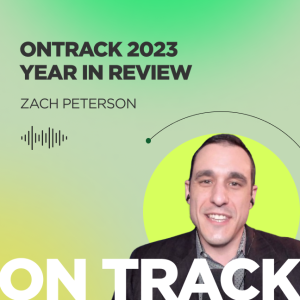
Tuesday Dec 19, 2023
OnTrack Year in Review 2023
Tuesday Dec 19, 2023
Tuesday Dec 19, 2023
Listen to the latest episode of OnTrack to hear a round up of the key PCB design trends from 2023. Explore themes such as evolving manufacturing dynamics, including shifts closer to the United States and Europe, influencing future innovations. Dive into the world of packaging design advancements and emerging trends such as robotic vision and new tools shaping the future of PCB design and the broader electronics market.
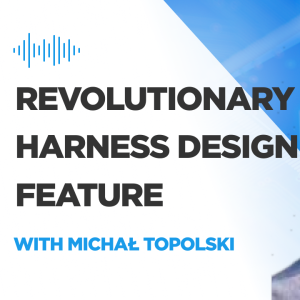
Tuesday Dec 12, 2023
Altium’s Revolutionary Harness Design Feature Unveiled
Tuesday Dec 12, 2023
Tuesday Dec 12, 2023
Explore the world of harness design with Michał Topolski, product manager at Altium, in this episode of the Altium OnTrack podcast. Learn about the two main aspects of harness design—multi-board and harness design itself—and how they are interconnected. Michał delves into the integration with MCAD tools, the importance of data integrity, and the positive user reactions during the open beta phase. Discover the features and improvements in harness design and get a sneak peek into what the future holds for this tool.
Key Highlights:
- Multi-Board & Harness Design: Explore the synergy between multi-board and harness design, unraveling the interconnected world of these crucial aspects.
- Harness Design Overview: Gain insights into the fundamentals of harness design, delving into the significance of BOM and the development rationale.
- Hands-On with Harness Design: Take a closer look at the practical aspects of harness design, understanding its physical dimensions and the seamless integration with Altium Designer.
- Altium Designer Harness Design Integration: Discover the efficiency gains by eliminating back-and-forth processes through Altium Designer's integrated harness design features.
- User Reaction and Workflow Improvements: Hear about the overwhelmingly positive user reactions during the open beta phase and explore the workflow improvements that redefine the design experience.
Transcript
Zach Peterson: So with a harness design, I think people might think of that as like probably two possible things. One might be like a custom cable assembly, one might be a custom connector housing or maybe an off-the-shelf housing that has custom wiring that is built into it. Maybe it's hand assembled, maybe it's factory assembled. But you probably have a bunch of wires spanning between two or more connectors. And then you need to integrate that into the project somehow. Is that correct?
Michał Topolski: Yes, that's precisely it. And we support both of these ways. So you can just have a off-the-Shelf cable connection and you can have it listed in BOM as a single item or you can have your own harnessing wiring drawn and have have it manufactured custom.
Zach Peterson: Hello, everyone and welcome to the Altium OnTrack podcast. I'm your host Zach Peterson. Today I'm talking with Michal Topolski, the product manager here at Altium. As I said in a previous episode, it is that time of the year where AD is coming out with a new version and we get to learn about all the cool new features that are gonna be in the latest version of Altium Designer. So I'm very happy to have Michal with us here today. Thanks for joining us.
Michał Topolski: Yeah, hello. Thank you. Thank you for a brief introduction. Hello to everybody. Yes, yes, as you mentioned, we are now launching briefly AD 24, which is obviously the next version, the next big version count and that's always a good moment to have new features introduced.
Zach Peterson: So one of the themes I've been noticing with the new group of features has been really twofold. One is collaboration and then another is in kind of multi-disciplinary design and really I guess focusing more on product design. And you're working more in the second area. So maybe tell us which feature it is you're overseeing.
Michał Topolski: Yes, thank you for this introduction. So yes, I'm working on electronic product design and part of this of it is a multi-board and the other part is harness design. And these two are very much correlated. So as I believe every electronic engineer knows, there are many elements to the electronic product and obviously, PCBs are the base of it, but then you have to have connect them somehow. So that's when the harnessing comes in. So that's wiring, cabling. We have different names and they obviously mean some other things for some people, but we generally, we call it in Altium Designer, we call it harness design.
Zach Peterson: So with a harness design, I think people might think of that as like probably two possible things. One might be like a custom cable assembly, one might be a custom connector housing or maybe an off-the-shelf housing that has custom wiring that is built into it. Maybe it's hand assembled, maybe it's factory assembled. But you probably have a bunch of wires spanning between two or more connectors. And then you need to integrate that into the project somehow. Is that correct?
Michał Topolski: Yes, that's precisely it. And we support both of these ways. So you can just have a off-the-shelf cable connection and you can have it listed in BOM as a single item or you can have your own harnessing wiring drawn and have it made, have it manufactured custom.
Zach Peterson: So when you say it can be part of the BOM, this could be like a mechanical element that appears in the BOM, is that correct?
Michał Topolski: No, actually harness design is a separate project on its own. So it's like you have schematic and you have PCB, then you have a separate PCB project.
Michał Topolski: Right?
Zach Peterson: Gotcha.
Michał Topolski: And harness design in Altium Designer is a separate harness project, which means it has its own BOM. So yeah, well, technically these elements are mostly mechanical or electro-mechanical if you're concerned with some items. But they are in a different space right now. In the future, we'll connect these two spaces in probably one consolidated BOM in multipart. But that's speaking about the future.
Zach Peterson: So I have to ask, and I think some other people have probably asked this question themselves, why did Altium decide to develop a harness design feature? Altium, obviously known for PCB design software, and then more recently, a lot of the cloud management tools that have really helped propel enterprises to be more productive. But harness design seems a little out of left field to me.
Michał Topolski: To me, it's very complementary. So if an engineer has ever been designing a more complex design, he would notice at some point that there are electrical connections between boards and without Altium Designer, the history is quite the same. So initially, it was obviously, as you mentioned, a PCB design tool, which is very successful in this field. But then we decided that we need to grow because the modern electronic products are not just single PCBs, even very complex, like 16 layers or more, whatever. It's just so much more. So then we created multi-board and when you have this multi-board environment and you have different PCBs and models and electro-mechanical devices in that system, then obviously, you need to connect them somehow. And this is where the harness design comes in. So we've been asked by customers, okay, but I have my PCBs here and here but how do I draw my connections between them? So harness design model is a direct answer to that need and solves this problem. And yes, this is our very first approach to this area. As you mentioned, it might be a bit off in terms of PCB design that Altium's famous for but I think that when our users, and users from the outside that are willing to use Altium projects in the future, we'll see how it's implemented, how it's seamless to use. They'll notice that this is not just another harnessing tool from the electrical world because that's what our competition mostly is. Like, these tools are not tailored for the electrical engineers, electronic engineers. They're tailored for electrical work, like with the big machines and big industry and stuff like that. And in Altium, it's tailored to the needs of creating electronic products.
Zach Peterson: The most recent instance where I needed to do any type of custom interconnect design to go between multiple boards was using actually a flex connection. So doing kind of like a harness design approach, but doing it on a flex ribbon so it could bend and twist and do whatever you needed it to do. So with that type of system, you're really selecting the mating connectors and then you're designing a PCB to then connect everything and then you match up the pinouts. With a harness design, you're actually using wiring. So you're not really using a PCB layout tool to draw out those interconnects. So what does that look like for the user in order to create the physical design, not just the logical design, but the actual physical design?
Michał Topolski: I would say it's very similar to what we have in PCB. So there's this logical layer which is schematic in PCB and we have wiring diagram. You can draw the individual wires and connect splices to them and just route them in the proper way. But then you have the layout drawing and this is something like a PCB in PCB projects. So this is a place where you actually draw the topology. It seems very much like schematic, but it has different objects in Altium. So it uses bundles. So we can draw not just individual wires, but you can route them inside how they are bundled, how they go together. Obviously, we have objects like connection points, which are used to rout these bundles, to assign splice points to these connection points. And yeah, if you look at it, it's very obvious. I may share a sample project so I can show for a second. So this is wiring drawing, a wiring diagram where you can draw individual wires as I mentioned.
Zach Peterson: Well, for those listening on audio, we're looking in the Schematic Editor right now. For those watching on YouTube, you're getting the full view, but on audio, it looks like we have a bunch of boxes drawn out that would typically represent components and then you have the wires drawn between them. So it looks a lot like a schematic and I think it's really familiar for a lot of users.
Michał Topolski: Exactly, and that was our goal 'cause we're in Altium and schematic is a well-known environment, so it's very seamless to learn how to use harness design model because, essentially it looks very much the same at this point. But then we go to layout, which also kind of looks like schematic, but we can route our wires, well, actually route bundles and the wires are routed inside. So it's automatic. When the whole net is defined properly in the wiring diagram, and when the bundles are connected properly in the layout, then the wires inside are routed automatically. So then when in your BOM, you generate your wiring list from two table, which defines from which point the wire goes, and where it ends is defined automatically and generated automatically.
Zach Peterson: So what we're seeing here in this layout, like you said, it looks a lot like a schematic, but we actually see pictures and graphics that show the connectors and then we see what looks like lines drawn to represent the different wiring bundles that go between each of the connectors.
Michał Topolski: I just want to emphasize that these graphics, as you said, they're not just graphics, they are full 3D models of components. So we can actually generate different views in design. So you don't have to pre-prepare these images as you would do in many tools. They're not just simple graphics. They are interactive, sorry. And you can, for instance, have a wireframe view, you can look from different angles. So it's very flexible in that term.
Zach Peterson: So you said there's a wireframe view. Can you describe that for us?
Michał Topolski: Sure, so what you see here right now, it's a full shaded view of a component but in some cases, it's not the best one because some details might not be visible. So we would like to go into pure black and white line mole, which only limits the contours of the component, and this is it. For those who watch us, you can see that, for instance, I have just dynamically changed this shaded model to a wireframe model just like that just because as I said, this is all generated in design. It's not pre-prepared images or graphics.
Zach Peterson: Yeah, I've had to draw out wiring diagrams in the past and I will admit I have had to go onto Google images and search for an image of that connector or find a image on DigiKey or something and copy it into a PowerPoint. So I think it's very convenient that you can automatically create a lot of these assets directly inside of Altium Designer. So this is all really interesting and one thing I, of course, have to ask is was this something that was in really high demand with users?
Michał Topolski: It was in high demand, especially among those users that were multi-board adopters, that were using multi-board previously because they have noticed the need. And this is also an endless cycle because if we get more people that are using multi-board, they get to use harness and then the other way, they also use more of the multi-board. So that's good, that's good for us and that's also good for users because then we get more attention, which means we get more development on that and we can improve it faster. So yes, we're listening very carefully to all feedback about multi-board and harness very much these days because I think the tool is very good and we have many voices of our customers that are happy with what it is. But we also know that there's a long road ahead of us, and yes, we're trying to catch all the voices. It might take some time, just be warned but in the end, I think we're gonna make it a really seamless tool for everybody that's interested.
Zach Peterson: And so this is gonna be included with all the standard multi-board design tools? This isn't like an external feature that you have to purchase or anything like that?
Michał Topolski: No, but it's where we're emphasizing that. As you mentioned, this is part of multi-board. So product design suite and this is Pro and Enterprise license level. It's not standard. Unfortunately, harness design right now, it's not standard but it's Pro and Enterprise and while harness design can be used as a standalone project, so we don't need to have a multi-board project to actually have a harness project. They can be separate project, that's no big deal. But we encourage people to use multi-board project first because if you define your connectivity inside multi-board, then it goes into the harness design. So they are interconnected this way and we plan for this connection, this strict connection between these two environments to really bloom in the future. We would like to have end-to-end connectivity checks and stuff like that. So brace yourselves. I think some interesting things are coming in this environment. But coming back to licensing, I also wanted to mention that while A365 is not necessary for using harness design but to use harness-specific library components, like wires and cables, we actually need A365 because this is a cloud-enabled feature. So you can have your wires and cables inside harness design but if you want to store them in the library, you're gonna need the A365.
Zach Peterson: Sure, that makes sense. So you brought up things like wiring and storage in the library. I guess that begs the question, what sort of information is needed to input into a design in order to use everything successfully? I ask that because obviously, we're talking about wiring harnesses. So you need wires. You need connector body. You probably also need something like, I don't know, crimp contacts. And maybe if it's gonna be hand assembled, there's gonna be a special tooling that's needed. What's the complete suite of information that someone would need in order to create a project and then pass the documentation off to their assembler who can then make this design into a physical object?
Michał Topolski: Harness designing work is not very standardized. So I would say it very much depends on individual process of the company that is using it. I've been speaking to many customers and some of them just limit to drawing connectors but very generic. They don't even have to use models. They don't care very much about the lengths and margins, production margins about how many twister are and stuff like that. They just leave it to their manufacturers because they outsource it. And then you obviously need some lower level detail. But then some of these companies also are manufacturing samples or even small batches inside their facilities and then they need complete information because they use it directly like a flow below. So yeah, I would say it very much depends. But the basic set would be obviously to have some connectors that you would like to use. But again, if you utilize multi-board, you can define mating connectors in there and then they will be brought to wiring diagrams. So you wouldn't start from scratch. You would have them in there. Then you also have to draw wires but you don't necessarily need to have them predefined. You can always change properties and like components inside the design. So you can think of wires that you have as a generic components idea that we have in schematics. So we just place generic component, generic wire and then you can assign a component or assign properties to it, whatever you would like to do. And well, I'd say that basically that that's it 'cause then other things are purely your design. So you define splices, you define the topology and from that, you can bring these drawings to Draftsman and generate your manufacturing drawings.
Zach Peterson: So as far as like what the wiring is concerned, there are some properties that you could assign as I think what you said. So that could be like wire gauge, strip length, number, you said number of twists, which which would make sense. Number of strands if it's stranded wire, those kinds of things.
Michał Topolski: Yes, exactly, exactly. Color, gauge. These are very basic stuff. And one thing that maybe it's worth mentioning at this point is as I've been showing this layout, drawing, some may have noticed, this is a 2D, so two-dimensional drawing, it's flat only. And many complex harnesses are needed to be routed in 3D environment. And this is right now not possible inside Altium but we have CoDesigner feature, which has been with us for many years now and I think many Altium users are familiar of that. We right now have tests with Creo regarding current design integration, which means that you can take your wiring diagram and direct the information stream directly to MCAD, so you then get connectors, you get the connectivity, you get it from to table inside Creo and then you can route the design in 3D in there and then get back with the information, which is most crucial, which means lengths. And with these lengths, you can create your BOM and your lengths, wires and stuff like that. So this is a flow that many customers has been asking about and right now, as I said, this is Creo but we intend to also support our other environments, which CoDesigner already supports for PCBs.
Zach Peterson: So that's really interesting. It sounds like someone can take the import from the harness design in terms of let's say the connections, connector bodies and what's involved in terms of wiring. The mechanical engineer can then place those, move them around to where they need to be inside an enclosure and then that information can get pushed back into the harness design. Is that the correct way to think about it?
Michał Topolski: Right now, it's less about positions, especially in three-dimensional space. We don't support that yet inside harness design. It's more about the pure length because there's a difference if you route a cable or wire in between two points and you do not take into consideration how they're routed in 3D space because they might go around some elements that you have and if you don't account for that, then the wire would be just too short. You just draw it on plane surface. So this is actually the goal here right now, but there are some plans to bring the 3D model of harness design that you design in MCAD to a multi-board assembly environment. So then you have this represented inside our Altium environment and as I mentioned before, 'cause we own the connectivity that you defined in multi-board, we can also show point-to-point connections in the future obviously. So yeah, this is our goal here.
Zach Peterson: So this is interesting because I think normally, someone might use an MCAD application to try and model a wiring harness. I know that there are specialty applications that are out there that are specifically for wiring and cabling and stuff. But I think as you said, they're for larger machines, industrial settings, that kind of thing. It sounds like the real difference with an MCAD application is that the MCAD application has the ability to give the information back to the PCB designer so that they can quickly generate an entire bill of materials for every part in their system. So each of the PCBs, the cable, cable assembly, all of that.
Michał Topolski: Exactly, exactly. That's the way we see it. And this is a place where actually starting harness design, not in MCAD but in Altium Designer and harness design model can be superior to just purely MCAD. Obviously, there are some components that we don't have in Altium, which would be like fasteners and some mechanical parts. And obviously, the enclosure, so it has to be designed in MCAD environment and about that, this is the way to do it. But then, I think in the end, at least this is what I've learned, there are many, many engineers that would like to own this information inside Altium and generate, as you mentioned, this unified documentation from Altium Designer.
Zach Peterson: So if you were starting in the MCAD side and then going into defining the constraints for the PCB, essentially the MCAD user would have an opportunity to possibly select some of those connectors on the front end and then just pass that information onto the designer, rather than having the designer receive the board and the enclosure information and then try to fit connectors within that. Then it has to get passed back again to get verified. And so you eliminate some of that back and forth if the MCAD user could start first. Would you agree?
Michał Topolski: Yes, yes, that's perfectly the goal. I think it's not yet supported exactly the way you described it. This is the ultimate goal. Right now, we usually start with the information from harness design, but I think it's like a new feature if we do that 'cause right now, we're very much focusing on the integrity of the data, so there is no corruption happening. That's the most crucial for us. And all these improvements, like starting in MCAD, defining connectors there, other parts, obviously, it's coming as well.
Zach Peterson: Okay, but at at least someone could start an MCAD and at least have kind of a paper doll model and then say these are your three connectors, copy and paste into a Slack chat or something and then the designer can just take that, put it in their BOM and then they're off and running. So I think you mentioned two other tools within Altium Designer where there's an integration with harness design that was Draftsman and then exporting to the BOM, is that correct?
Michał Topolski: Harness design is a standard BOM, as you know from PCB projects, and standard Draftsman, as you know, from PCB projects. And I think this is the only way to do it actually in Altium. So they have this unified environment. This is our goal. This is still one Altium design. There is no separate harness design software. It's part of our suite. So it's only only natural for us to utilize the same environments. And I think it's very, very useful. I've heard these kind of voices that having wiring diagram and layout drawing in the same drawing, in the end, is something that not many tools in the market can do and can be beneficial. And also our active BOM and our connection to the Octopart and having lifecycle statuses and all that, that's also very, very useful to engineers to not design something that will be obsolete in a month or so. That would be very bad.
Zach Peterson: So inside of Draftsman, for example, since this is all its own project, essentially, you're just placing the region where you want the wiring harness drawing to appear in Draftsman, right click, import and then bam, your drawing appears there.
Michał Topolski: And when you make changes to one of these drawings, wiring or layout, you just have to again click the magic import button and it updates. That's it. That's all we need.
Zach Peterson: Very cool. Very cool. So I think we have time for one more question, which is really about the user reaction. I know that earlier I asked you if it was in high demand and now that it's been in beta for a little bit, I have to ask, what's been the user reaction? What are people saying, positive or negative?
Michał Topolski: Yes, thank you very much for this question. User reaction was largely positive, very positive. And I want to emphasize that when we launched into open beta in January, that was after a few months of development with some very, very engaged customers that were helping us to get through the MVP process. So when we launched, well, it was a newborn obviously. But I think the dynamics of the team that is developing the tool and all the people that are involved in the process, especially customers and everyone that's helping is really helping us to learn this baby to walk very fast and then ride a bike very soon also. So the reactions are very positive and this dynamic is also very visible to people. I've heard reactions like, "Oh, we have not seen this tool for three months 'cause we're exploring and now we're exploring again 'cause we have a project that we need harness for and it's a different tool now. It's so much better." So yeah, that's like genuinely the reaction I've had and I hope that this will persist in future. So that's the message to everyone that has been exploring Altium harness design in January this year and has dropped it since. And please, try again. If not now, then in January in '24 when the tool will to go out of open beta. You'll notice that the tool has changed a lot. It has become much more stable and there are many features that were missing, the big ones, but also the small ones, you know, the quality of life improvements, all that. I think it's very important. Especially in last months, we were very focused on improving all these tiny little things that are very useful in everyday life of every engineer. So just to reduce the count of clicks and all these things that make us bored and nervous at some point. So yes, and I also would like to encourage everyone that has touched the tool, but not only harness design, I mean about Altium Designer to go to forum if you have not done it and express your voice because this feedback really matters. We would like to hear that. I am one of the people that would like to hear it, we listen to it. And then we react to these voices when creating the tools for you.
Zach Peterson: Yeah, we'll include a link to the forum in the show notes. So final question before we let you go. You alluded to some potential improvements on the workflow, like starting from MCAD, going back to PCB. Are there any other interesting nuances or feature upgrades or improvements to this tool that are on the horizon that you can reveal? Or are people just gonna have to subscribe to the channel if they wanna learn more?
Michał Topolski: I'll just generally say that we seek for improvements, some big improvements in the management of components, how they are linked in between and there are also some improvements coming in terms of how you can define models inside multi-board. But I don't want to go into details right now 'cause as you know, deadlines are dangerous. I should not be showing any details about these. So just please stay tuned and if you are interested in some very particular features that you would like to see or have heard about from somebody, then just please contact us directly and we'll have a chat.
Zach Peterson: Sounds great, and I guess as all of this rolls out and slowly improves over time, we'd love to have you back to talk about this more.
Michał Topolski: Thank you very much.
Zach Peterson: Thank you very much. To everyone that's been listening on audio or watching on YouTube, We've been talking with Michal Topolski, product manager at Altium who is overseeing the harness design rollout. If you are watching on YouTube, make sure to hit the Subscribe button, hit the Like button. You'll be able to keep up with all of our tutorials and feature announcements as they become available. And last but not least, don't stop learning, stay OnTrack and we will see you next time. Thanks, everybody.
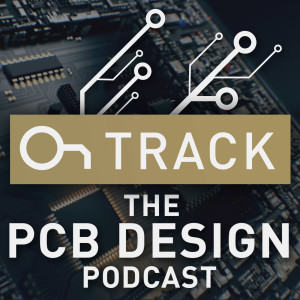
Friday Dec 08, 2023
Revolutionizing PCB Design with Altium’s 3D MID Tool
Friday Dec 08, 2023
Friday Dec 08, 2023
Explore the transformative world of 3D MID design in the OnTrack Podcast as Altium's Jack Henriques and Harting's Michael Mross discuss Altium's cutting-edge 3D routing tool. Gain insights into the vast potential of molded interconnect devices (MIDs) across industries and stay updated on the future of PCB design.

Tuesday Nov 28, 2023
Unlocking Collaboration: Altium’s New PCB CoDesign Tool in AD24
Tuesday Nov 28, 2023
Tuesday Nov 28, 2023
Dive into the future of collaborative PCB design with Altium's latest feature, the PCB CoDesign tool in AD24! In this exciting episode of the Altium OnTrack Podcast, our host, Zach Peterson, sits down with Wojciech Łaś, Product Manager at Altium, to explore the ins and outs of this innovative tool.
Discover how the PCB CoDesign tool allows multiple designers to work on the same PCB layout simultaneously, extending Altium's version control system. Learn about the compare and merge tool, a game-changer for detecting, comparing, and resolving conflicts in PCB layout files. Wojciech shares insights into the challenges of coordinating work among multiple designers and strategies to optimize the collaborative workflow.
Get a sneak peek into the future roadmap, including upcoming features like merge requests and improved conflict prevention. Find out how Altium's approach differs from real-time collaboration tools and the advantages of asynchronous collaboration.
Whether you're a seasoned Altium user or exploring the world of collaborative PCB design, this podcast provides valuable insights and a glimpse into the future of electronic design.
Show highlights:
- PCB CoDesigner Overview
- Unique Features of the PCB CoDesigner Tool
- Strategies for Collaborative Design
- Layer-Stack Locking and Rules System
- Future Developments: Merge Requests and On-Premise Availability
Links and Resources:
- Learn more about PCB CoDesign Coming Soon in Altium Designer 24
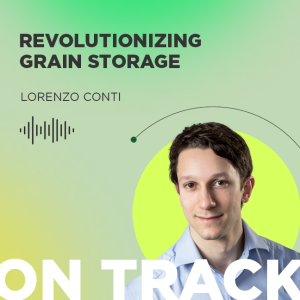
Wednesday Nov 15, 2023
Revolutionizing Grain Storage: New Tech for Sustainable Agriculture
Wednesday Nov 15, 2023
Wednesday Nov 15, 2023
In this episode of the Altium OnTrack Podcast, join host Zach Peterson as he sits down with Lorenzo Conti, Founder and Managing Director of Crover. Discover how Crover is making waves in agriculture with their pioneering locomotion technology in granular materials.
From swimming through bulk solids to monitoring grain storage conditions, Lorenzo sheds light on how Crover's robot is transforming the grain storage market. Learn about the social and environmental impact, reducing losses, preventing infestations, and improving the overall efficiency of the grain supply chain. If you're interested in the intersection of robotics, hardware, and agritech, this episode is a must-listen. Tune in to explore the future of sustainable agriculture and the exciting innovations happening at Crover.
Show Highlights:
- 0:00 Intro
- 0:59 What Crover Does
- 2:33 Background in Farming?
- 3:48 Why Pursue Robotics in This Area?
- 6:11 Bad Storage and Losses
- 7:50 Other Markets and Food Products
- 8:58 Huge Potential
- 9:26 Larger Items?
- 11:15 How Do Farmers Receive Data?
- 13:21 What the Data Attempts to Predict
- 15:04 How Farmers Use the Data
- 16:37 How Technical Do the Users Want the Data?
- 18:27 Smaller Farmers?
- 19:38 Farmers in Developing Countries?
- 21:36 Working with Government or Nonprofits?
- 22:39 Overall User and Investor Response?
- 24:23 Scaling Challenges
- 27:14 Investor Relations
- 30:09 Cost of Deploying in Developing Countries
- 32:48 Where Does Crover Go Next?
- 35:03 Outro
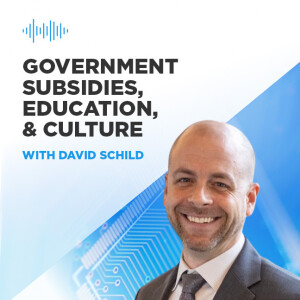
Wednesday Nov 15, 2023
Microelectronics Today: Government Subsidies, Education, & Culture
Wednesday Nov 15, 2023
Wednesday Nov 15, 2023
Join us on this episode of the Altium OnTrack Podcast as we sit down with David Schild, Executive Director of the Printed Circuit Board Association of America (PCBAA). In this insightful conversation, David shares the mission of PCBAA, its role in advocating for domestic printed circuit board manufacturers, and the unique challenges and opportunities in the industry.
Discover the fascinating world of printed circuit boards and substrates as David talks about the diverse members of PCBAA, ranging from woven glass producers to drilling equipment manufacturers. Get a glimpse into the innovative world of PCBAA through David's discussion of the association's impactful business cards and the importance of physical materials in conveying industry priorities.
Explore the conversation about the state of the industry, workforce challenges, and the need for sustainable growth. David sheds light on the role of automation in manufacturing facilities and the vital connection between education, advocacy, and legislation in shaping the future of the electronics industry.
Whether you're a seasoned professional or just curious about the world of printed circuit boards, this podcast provides valuable insights into the heartbeat of modern electronics. Tune in to learn more about the industry's past, present, and the exciting possibilities that lie ahead.
Don't miss out on this engaging discussion that brings the world of electronics to life. Watch the video on YouTube to see the impressive business cards and gain a visual understanding of the technology driving innovation in the electronics manufacturing sector. If you're passionate about technology, manufacturing, or simply intrigued by the inner workings of the devices we use every day, this podcast is a must-watch!
Show Highlights:
- Intro
- What David Does for PCBAA
- David's Background
- What Should the US Market Share in Microelectronics Manufacturing Be?
- Government Subsidies & a Race to the Bottom
- What Role Does Automation Play in Price Competition?
- Encouraging Young People to Get Into the Industry
- Electronics & Popular Awareness
- Is the Messaging Getting Through?
- How to Educate the Masses about Microelectronics
- PCB-7?
- It's Going to Take Time
- Impressions about PCB West
- Increased Visibility at Trade Shows
- Learn More about PCEA & PCBAA
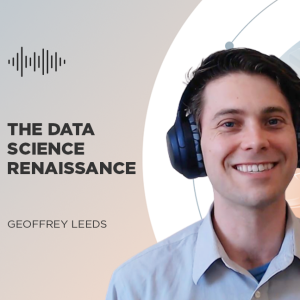
Wednesday Nov 01, 2023
The Data Science Renaissance
Wednesday Nov 01, 2023
Wednesday Nov 01, 2023
In this episode of the OnTrack Podcast, our host Zach Peterson sits down with Geoffrey Leeds, the founder of Leeds Engineering and Data Science. If you've ever wondered how production managers react to integrating data science into production operations, or if the term "data-driven decision-making" has piqued your interest, you're in for a treat.
Geoffrey shares his journey from his time at Insulectro to venturing out to help companies embrace data science. The discussion dives deep into the challenges and opportunities of applying data science in manufacturing, with a focus on improving decision-making and efficiency.
In a candid conversation, Geoffrey and Zach explore the misconceptions and hurdles faced by production managers when introduced to the world of data science. From the fear of complexity to concerns about cost and implementation, they tackle the real-world issues that arise when trying to bridge the gap between manufacturing and data science.
Whether you're a seasoned professional in the field or just starting to explore the possibilities of data-driven decision-making, this episode offers valuable insights and perspectives. Join Geoffrey Leeds and Zach Peterson as they navigate the intersections of manufacturing, data science, and the exciting potential for innovation in the industry.
Don't miss out on this engaging and informative episode of the Altium OnTrack podcast! Subscribe now and stay tuned for more discussions with industry leaders and innovators.
Show Highlights:
- Intro
- Return of Data Science
- Bad Data & Improper Recommendations
- Automated Process Solutions
- Capturing Data
- IIoT
- Onshoring & the Winds of Change
- A Plethora of Processes
- PCB Packaging
- 49:25 Manufacturing is Fun & Challenging Again
- 52:42 New Data Solutions
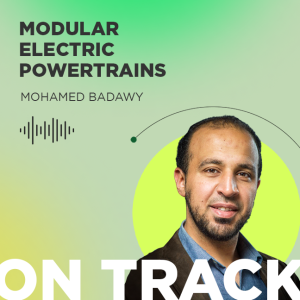
Tuesday Oct 24, 2023
Modular Electric Powertrains
Tuesday Oct 24, 2023
Tuesday Oct 24, 2023
Today we are joined by Mohamed Badawy, Founder & CEO of Scalvy Inc. He and Zach have a fascinating conversation about Modamed's company, Scalvy, and its innovative powertrain technology. As a part of this chat, the two cover how long it takes to introduce new concepts to the market, how Scalvy's tech works, AI integration, and much more.
- 0:00 Intro
- 0:55 Mohamed & Scalvy's Background
- 2:35 Mohamed's Research
- 8:14 It Takes Time to Explain a Concept
- 10:47 Modularization & Competitive Advantage
- 13:41 Safety, Reliability, & Auto Makers
- 19:05 Automotive Powertrain Standardization?
- 22:27 Creating the Powertrain Standard
- 23:15 Maintenance Costs?
- 25:00 What Happens with the Powertrain
- 27:08 AI Integration?
- 30:33 Aerospace Industry
- 34:14 Marine and Agricultural Vehicles?
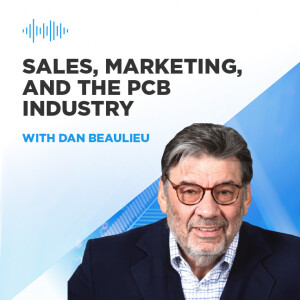
Thursday Oct 12, 2023
Sales, Marketing, and the PCB Industry
Thursday Oct 12, 2023
Thursday Oct 12, 2023
Today we are joined by Dan Beaulieu, founder and owner of Db Management Group. He and Zach chat about the PCB industry's broad marketing trends including how it's stuck in the past, the declining trade show industry, how sales reps can stay relevant, and much more.
- 0:00 Intro to Dan Beaulieu
- 5:48 Sales & Marketing Stuck in the Past
- 9:14 Impacts of the Domestic PCB Base
- 12:59 Is the Trade Show Method Going Away?
- 16:45 How do Reps Stay Relevant?
- 19:27 Focusing on Younger Designers
- 24:30 How Manufacturers Stand Out from the Competition
- 28:42 Designers and Board Shop Conflicts
- 31:42 Importance of Touring Shops
- 33:36 Capital Investment and PCB Shops
- 38:51 Focus on the Customer's Need, Then Provide It
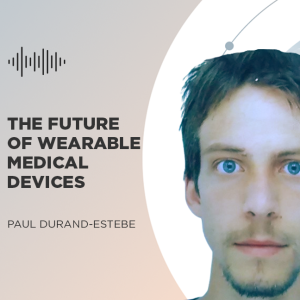
Tuesday Oct 03, 2023
Metyos & the Future of Wearable Medical Devices
Tuesday Oct 03, 2023
Tuesday Oct 03, 2023
Today we are joined by Paul Durand-Estèbe, Lead Electronic Developer at Metyos. He and Zach have a fascinating conversation about how Metyos is contributing to the future of wearable medical devices. They focus on Metyos's groundbreaking wearable glucose monitoring tech, the medical field's emergent wearables trend, and much more.
0:00 Intro
1:33 Intro to Paul and Metyos
2:56 A Lesser Invasive Glucose Monitoring Device
5:08 Better Monitoring Faster
8:14 Bad Glucose Monitoring Leads to Disastrous Results
10:52 Potential Chronic Health Monitoring Systems
13:33 Why Start with Kidney Disease?
16:36 From Monitoring to Administering Medication?
18:01 Scaling Challenges (Cutout a minute before this)
22:36 Proving the Effectiveness of the Device
26:54 What Does the Manufacturing Look Like?
31:37 Initial Response to Metyos
35:56 Doctors Receiving Real-time Data
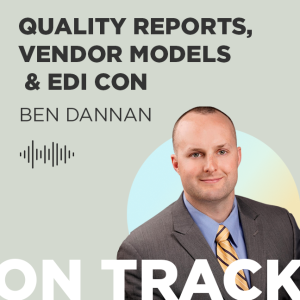
Tuesday Sep 26, 2023
Quality Reports, Vendor Models, & EDI CON
Tuesday Sep 26, 2023
Tuesday Sep 26, 2023
In this episode of the OnTrack Podcast, we have a chat with Benjamin Dannan, a defense & aerospace contractor. We talk about power integrity, high amps, quality reports, vendor models, the importance of verification, and much more.
Episode Highlights:
-
Intro
-
Ben's Background
-
Power Integrity Considerations
-
Vendor Models Quality & Accuracy
-
Trust & Verify
-
File Density Challenges
-
Die (integrated circuit) Models & Packages
-
"It's Easy to Miss Things."
-
Lost in the Translation
-
Ask for Quality Reports
-
2,000 Amp Challenges
Links and Resources:
- Watch Recent Related Episodes
- Read Related Articles:
- Connect with Benjamin Dannan on LinkedIn
- EDI CON Online 2023
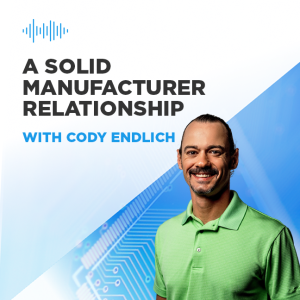
Tuesday Sep 12, 2023
Establishing a Solid Manufacturer Relationship
Tuesday Sep 12, 2023
Tuesday Sep 12, 2023
Today we have a fascinating conversation about PCB manufacturing, reshoring, testing, and much more with Cody Endlich, Head of Strategic Sourcing at MacroFab. He and Tech Consultant Zach Peterson discuss the latest trends in manufacturing, procurement, and supplier dynamics. This is a wonderful convo for anyone interested in the future of PCB sourcing and manufacturing.
- 1:00 Cody's Background
- 2:59 Internalizing the Broker Process
- 4:51 What's Different about MacroFab
- 8:25 Where Are MacroFab's Partners?
- 10:17 Reshoring Efforts
- 12:35 Copycats?
- 16:09 The Sourcing Picture
- 20:43 How MacroFab Tests
- 23:42 Bringing the Process In-House
- 26:16 Turning Heads
- 29:12 A Solid Supplier Relationship
- 34:54 Will Mexico's Trading Role Persist
- 38:13 MacroFab's Biggest Growth Area
- 39:32 Going Forward
Links and Resources:

Tuesday Sep 05, 2023
Inmox: Changing the Face of Industrial Monitoring & Maintenance
Tuesday Sep 05, 2023
Tuesday Sep 05, 2023
Today we have a chat with Daniel Kagerbauer, CTO and co-founder at Inmox. This is a fascinating conversation regarding Inmox's aim to change how industrial maintenance is done and, while their initial focus is on gearboxes, the implications for their software and sensor developments may be broadly applicable across the entire industrial landscape. The two talk about monitoring industrial systems, materials challenges, industry-specific applications, and much more.
If you're interested in advancements in the industrial space, this is the episode for you.
Show Highlights:
- Introduction to Daniel Kagerbauer CTO and co-founder of Inmox. Inmox is part of the Altium startup program called Launchpad
- Inmox is currently developing industry ready prototype and moving towards heavy industrial applications
- Commercial automotive and even the racing industry is a better fit for Inmox’s gearbox monitoring system
- Daniel describes in detail what their product look like, from a sensor oil screw that can monitor the vehicle’s lubrication system, installing T-tube and wiring local ethernets
- Data are being collected where the wear particles are present, and the oil screw with the lubricant have quite good access to essential stuff that needs measuring
- Smaller systems are more automative focus while bigger systems are applicable for wind energy versions such as a helicopter, moreover safety is utmost important
- Certification challenges can involve finances, redesigns and weight optimization
- How does the real-time particle analysis works?
- Daniel talks more about distinguishing between ferromagnetic, non-ferromagnetic, and the good old electro magnetism
- Inmox is currently in negotiation with potential customers and doing interviews with mentors from different industries
- Body vibration monitoring is more precise and reliable
- Inmox longterm vision is to promote extended lifespan to machines and pushing mechanical engineering in a more sustainable path
Links and Resources:
- Leap your start-up to the next level. Learn more about Altium Launchpad, a program designed to support early stage start-ups launch their product to the market, fast!
- Read related articles:
- Visit Inmox website
- Connect with Daniel Kagerbauer on LinkedIn
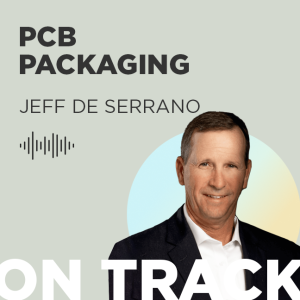
Tuesday Aug 29, 2023
PCB Packaging & the Future of Manufacturing
Tuesday Aug 29, 2023
Tuesday Aug 29, 2023
Today we're chatting with Jeff De Serrano, President of the American Division of PCB Technologies. We had a fascinating conversation about the changing nature of the PCB Manufacturing industry, focusing on aerospace, automation, AI, education, and much more. This is a wonderful episode for anyone interested in manufacturing and where the industry might be headed.
Show Highlights:
- Intro
- Intro to Jeff & PCB Technologies
- PCB Technology's Broad Reach in Aerospace
- Faster Packaging Times
- Packaging Advantages at PCB Technologies
- 2D, 2 ½D, or 3D?
- You Need the Know-How, Not Just People
- Broad Capability Won't Happen Overnight
- Semiconductor Companies Packaging?
- Workforce Challenges
- Automation Pipedream?
- Getting Students into Manufacturing
- Manufacturing is Totally Different Now
- AI Has a Long Way to Go
- Growth Areas in Electronics?
Links and Resources:
-
Check the recent related OnTrack Podcast episodes:
-
Learn more about Altium 365®, Where the world designs electronics
-
See how Octopart help you search for electronic parts. It is the most accurate and comprehensive electronic part data search engine right at your fingertips
-
Connect with Jeff De Serrano on LinkedIn
-
Visit PCB Technologies website
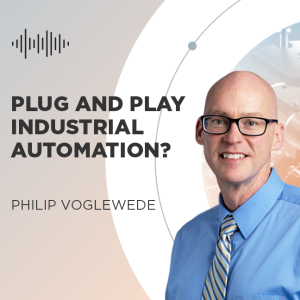
Tuesday Aug 22, 2023
Plug and Play Industrial Automation? It’s Only a Matter of Time
Tuesday Aug 22, 2023
Tuesday Aug 22, 2023
In this episode of the OnTrack Podcast, we are pleased to host a thought-provoking conversation between Tech Consultant Zach Peterson and Dr. Philip Voglewede, Professor and Associate Chair of the Department of Mechanical Engineering at Marquette University and Director at the Omron Advanced Automation Lab.
Zach and Phil have a very intriguing conversation about the role of automation in the current and future industrial landscape. Anyone interested in the current state of industrial automation, manufacturing, or labor trends won't want to miss Phil's insights, many of which are rooted in his work for the ground-breaking Omron Lab.
Show Highlights:
0:00 Intro
1:03 Phil & Omron Advanced Automation Lab
2:13 Pushing to Fail
5:27 A Space to Play
7:28 Omron's Early Achievements
11:26 De-Siloing & Student Response
16:37 Companies Noticing Student Skills
17:47 Students Handling Complex Problems
19:39 Grappling with the Role of Automation
23:05 Where Do We Get ROI?
25:18 Management is Adapting
27:14 The TOTAL Dollar Amount of Manufacturing Costs
29:33 Industrial IoT is the Achilles Heel
33:22 Plug & Play is the Goal
35:24 Make It Like Starbucks
37:13 Who Will Lead the Needed Standardization?
39:06 Will the Big Manufacturers Cooperate to Standardize?
41:15 Standardization is Only a Matter of Time
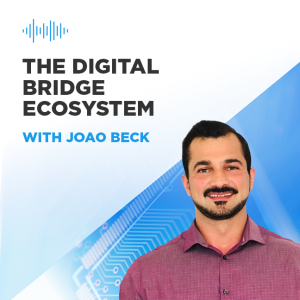
Tuesday Aug 15, 2023
The Digital Bridge Ecosystem with Joao Beck
Tuesday Aug 15, 2023
Tuesday Aug 15, 2023
There's a new workflow offering coming soon as a result of the collaboration between Altium and ANSYS. And today, we are joined by Joao Beck, Altium's Director of Enterprise Technical Marketing, to give us all the details. This new workflow is yet another step in Altium's quest toward a digital ecosystem, acting as an important bridge between ECAD and simulation Make sure to watch the entire episode so you can fully understand what's coming your way soon.
Show Highlights:
-
0:00 Intro
-
0:50 Altium's New Workflow Offering
-
4:53 MCAD CoDesigner in Simulation?
-
7:28 A Full Suite of Capabilities
-
8:20 What the Workflow Looks Like
-
10:40 What's in the Revision History
-
12:47 The Report
-
14:14 Version Control & Rolling Back Simulations?
-
16:16 Simulation to Altium & Vice Versa
-
21:43 Mechanical Simulation?
-
23:00 The Digital Bridge Ecosystem
-
25:38 Broader Access?
-
26:42 Who's This For?
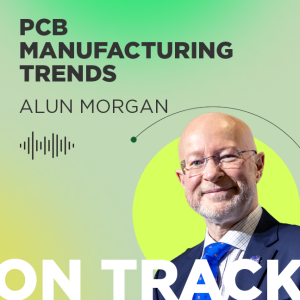
Tuesday Aug 08, 2023
PCB Manufacturing Reshoring, Automation, and Sustainability with Alun Morgan
Tuesday Aug 08, 2023
Tuesday Aug 08, 2023
We're joined today by the Technology Ambassador at Ventec and President of the European Institute for the PCB Community (EIPC), Alun Morgan. He and host Zach Peterson have a broad, thoughtful conversation centered on PCB manufacturing.
They chat about emerging manufacturing markets, potential for supplier buyouts, reshoring, automation, and much more. This is a fascinating conversation for anyone looking to get a current view on the international manufacturing market, as well as valuable insights into where it might be headed.
Show Highlights:
0:00 Intro
0:40 Current Manufacturing Trends in Europe
9:20 Growth in Packaging
14:49 Producing at Scale
21:31 Up and Coming International Manufacturing Markets
23:52 Big Manufacturers Getting Bigger?
29:21 Return to Buying Out Suppliers?
31:36 Variable Costs, PCB Manufacturing, & Reshoring
34:30 Pricing Pressures & Automation
40:39 Automation: Prices, Reliability, & Sustainability
45:04 Wrap-Up
Links and Resources:
- Watch more of Alun Morgan:
- Connect with Alun Morgan on LinkedIn
- Visit Octopart.com, The electronic part search engine

